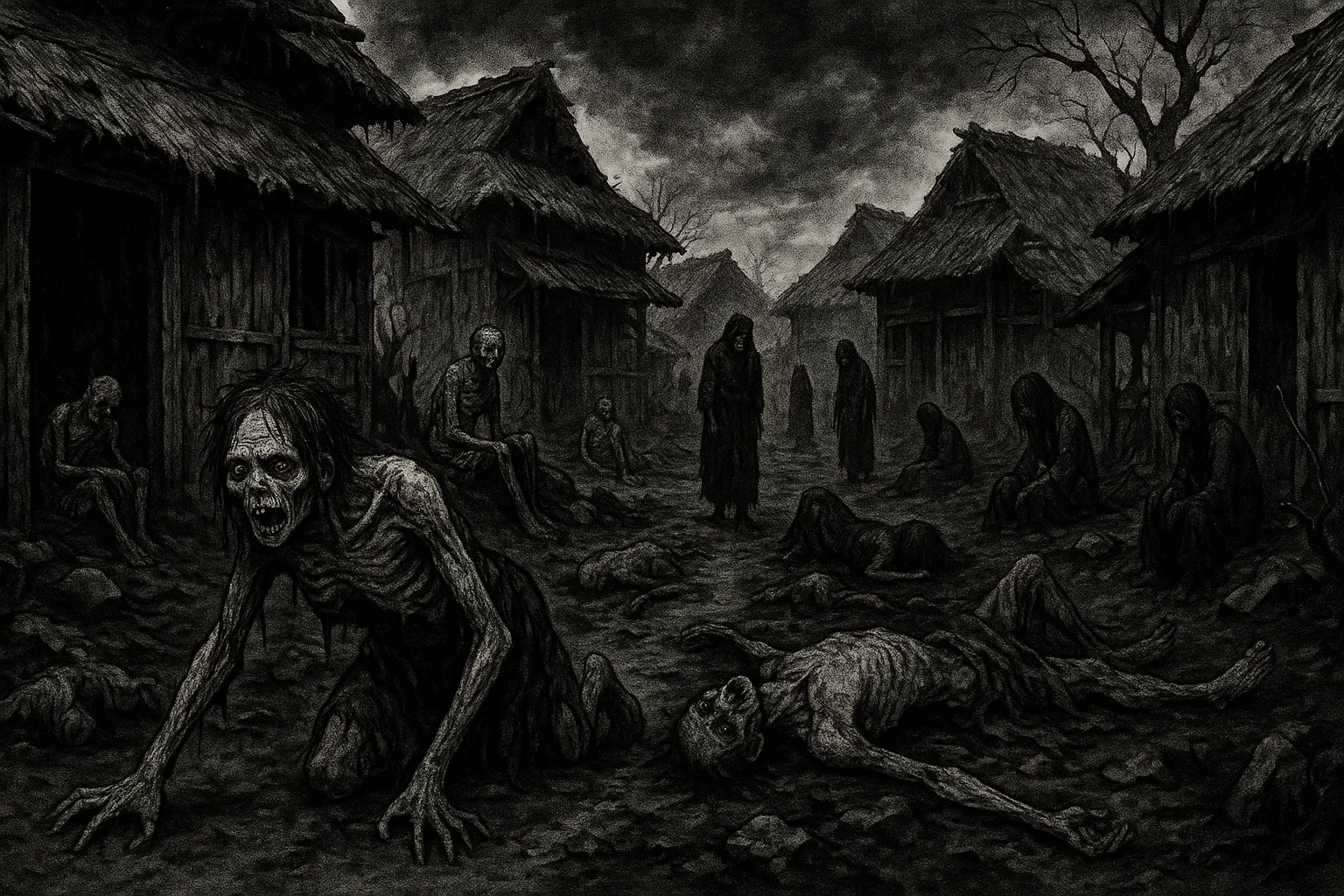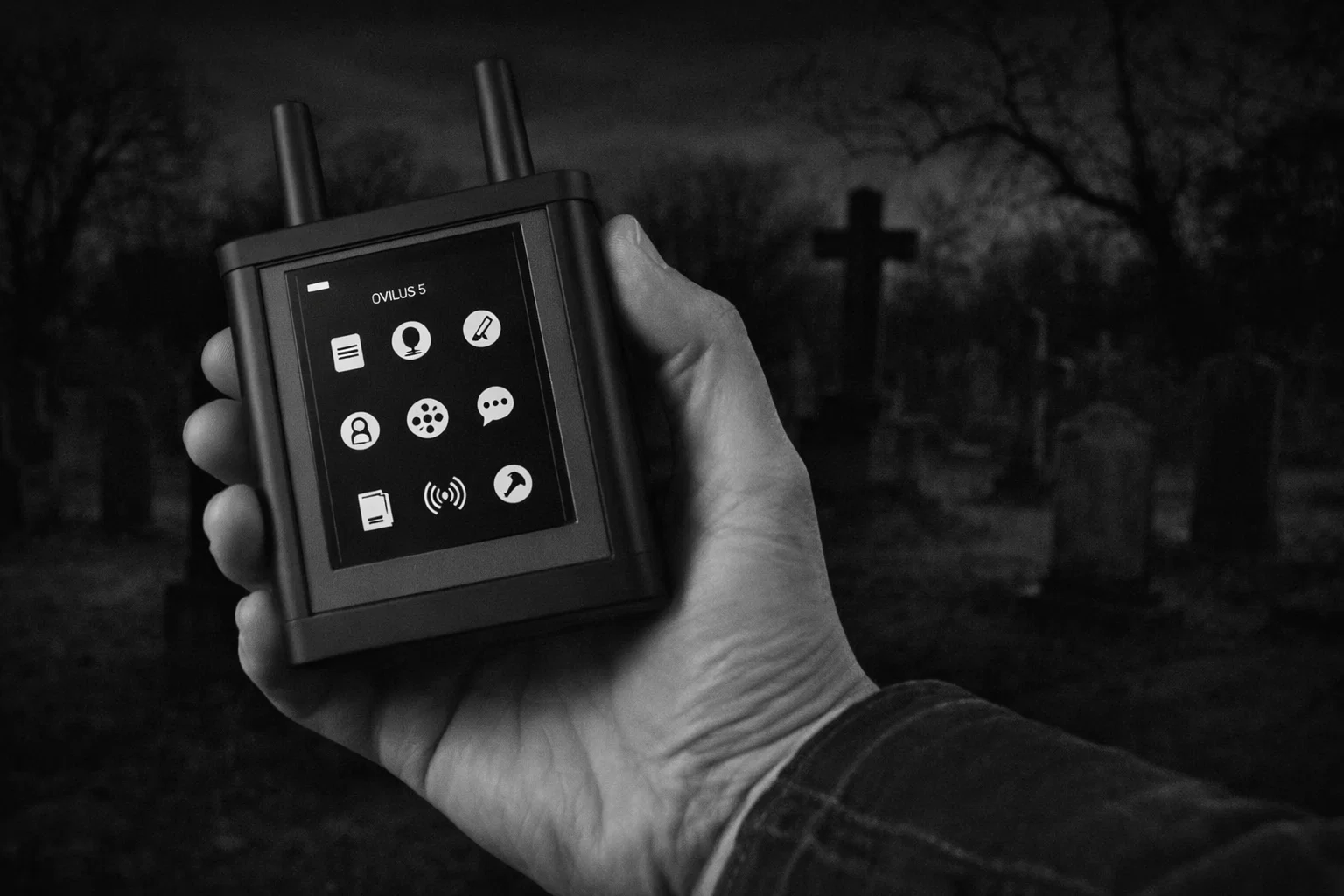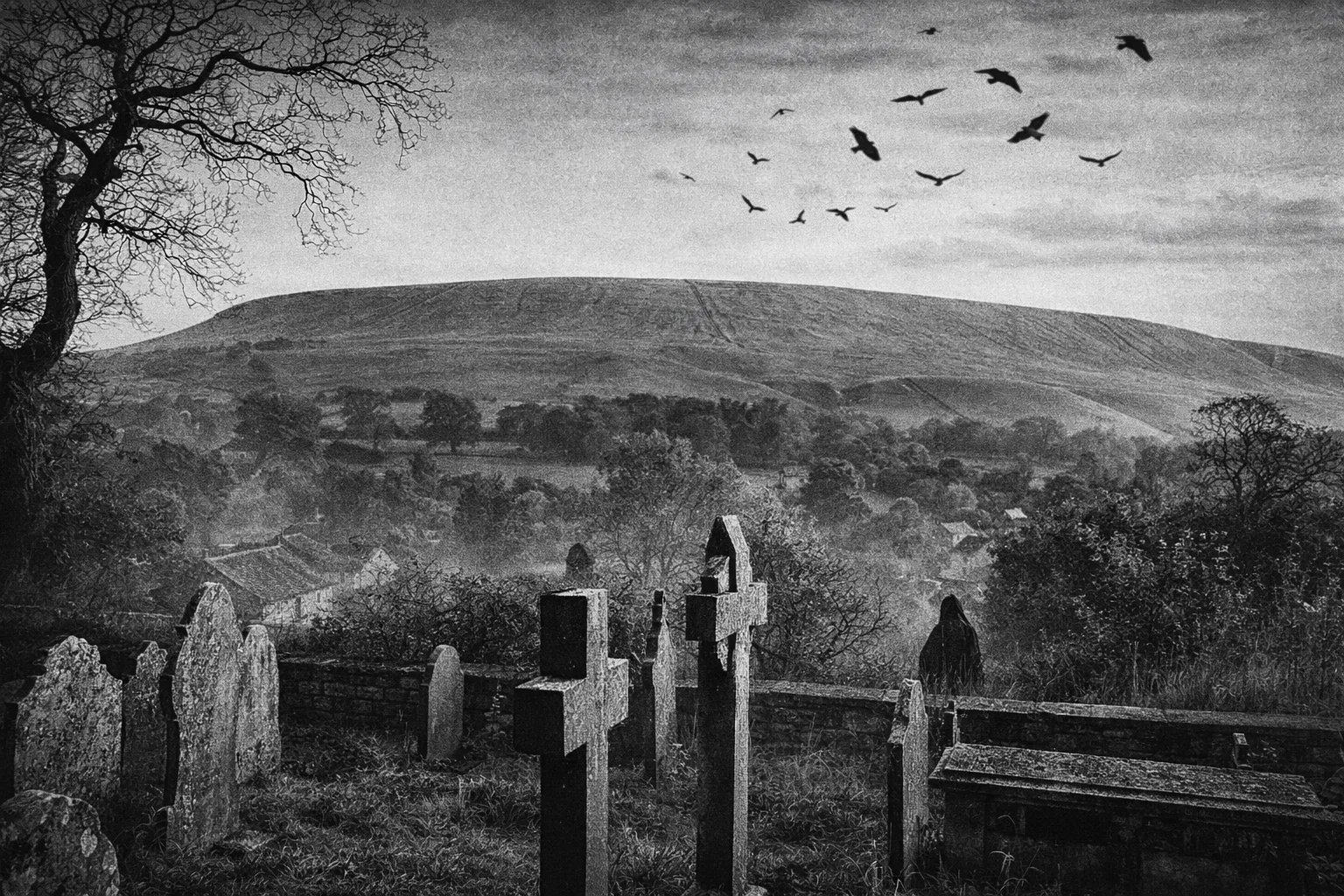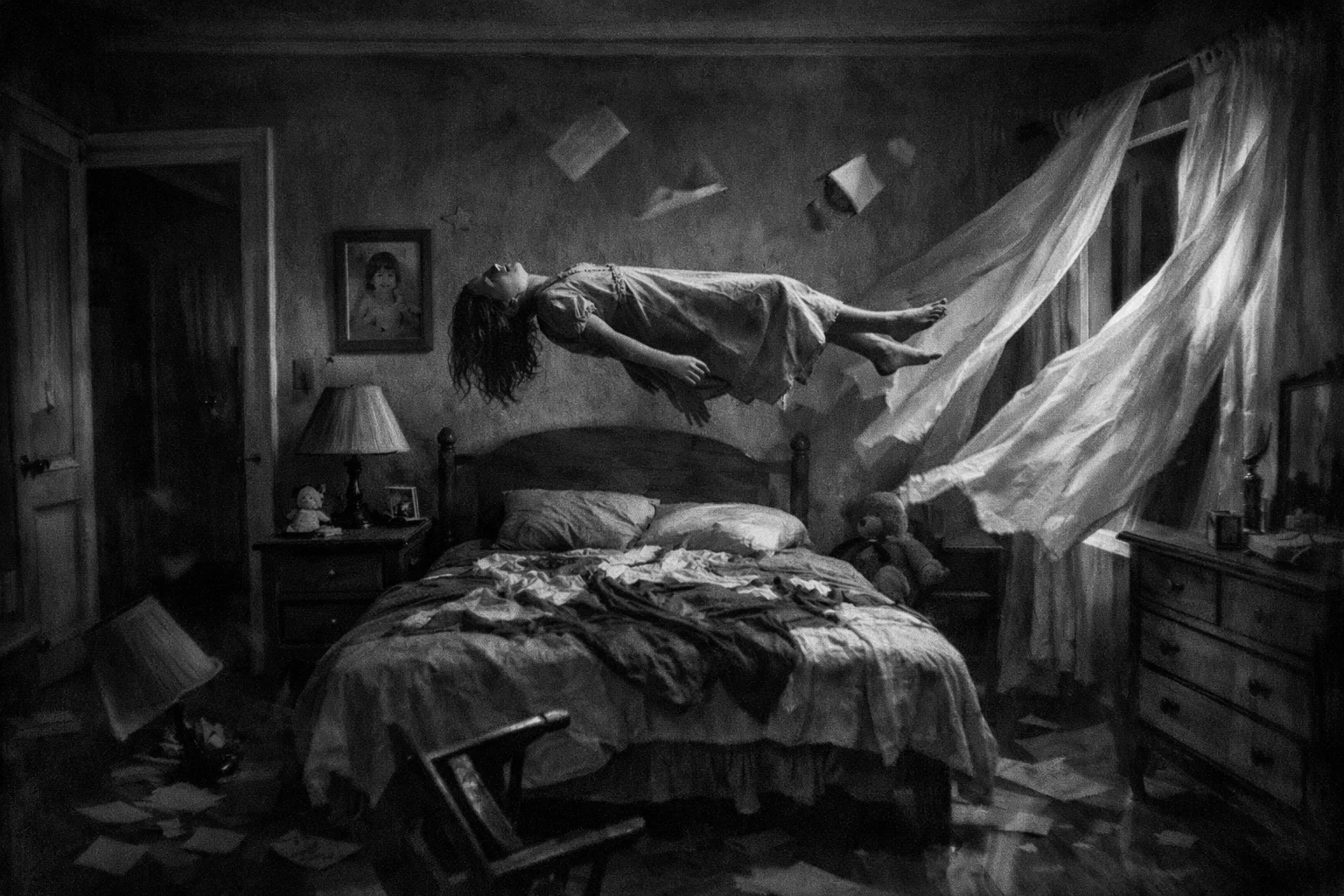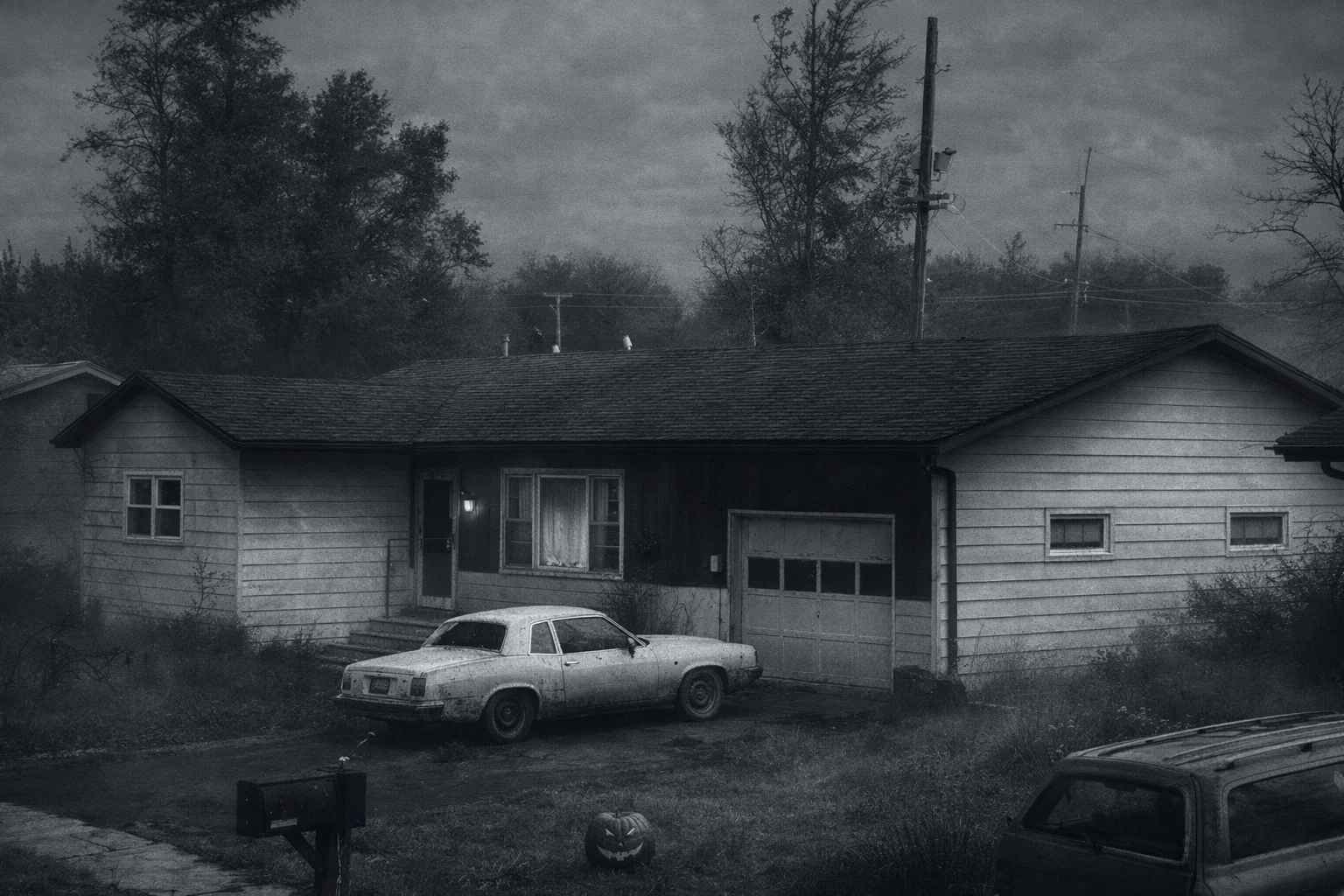In this chilling horror story, The Village of Starving Souls, set during Japan’s Great Tenmei Famine, a remote village harbors a terrifying secret born from despair and unburied dead. When merchant Taro travels a cursed mountain path, he encounters eerie whispers and a monstrous presence that threatens to consume him. This gripping horror story weaves suspense, folklore, and psychological dread, pulling readers into a haunting tale of survival and restless spirits.
Summary
Prologue
In 1783, the Great Tenmei Famine descended on Japan like a plague of locusts, its hunger insatiable. The northern mountains, where the village of Yureisato huddled, bore the worst of it. Rice fields cracked under a merciless sun; rivers dwindled to muddy veins. Families watched their children waste away, their cries growing faint, then silent.
The elderly followed, their eyes hollow with resignation. Even the strongest, those who clung to hope, succumbed—one by one—until death was as familiar as the wind.
The villagers, too frail to dig proper graves in the iron-hard earth, made a choice that would haunt them. They dragged their dead to a ravine beyond the village: a gaping maw in the mountainside, where jagged rocks jutted like teeth and the air reeked of rot.
Corpses piled atop one another, unburied, unblessed, their bones picked clean by crows that circled endlessly overhead. The wind howled through the chasm, carrying whispers—pleas, curses, sobs—that no one dared acknowledge.
Kaito, a boy of twelve, saw what others refused to see. One moonless night, driven by a child’s reckless curiosity, he crept to the ravine’s edge. The air was thick, sour with decay, and a chill slithered down his spine.
Below, blue flames flickered among the bones, dancing like will-o’-wisps. Shadows writhed—tall, skeletal, their movements jerky and wrong. A voice, thin and sharp, called his name: “Kaito… join us…”
He stumbled back, heart pounding, and ran, his screams swallowed by the night.
“They’re alive!” he gasped to the village elder, Hiroshi, the next morning.
“The dead—they move!”
Hiroshi’s weathered face tightened. “Nonsense, boy. It’s your fear talking.”
But Kaito saw the elder’s trembling hands, the way his eyes darted toward the ravine.
The villagers whispered among themselves: “The spirits are angry… we’ve abandoned them.” Yet fear kept them silent, and the ravine grew heavier with unrest. Strange lights glowed brighter; the whispers grew louder, angrier.
Years passed, the famine a fading scar. But the ravine remained—a festering wound, its hunger unquenched.
You May Also Like: Who Is Sitri? Inside Hell’s Sinister Trio and the Evil Trinity
Chapter 1: The Merchant’s Journey
Taro, a rice merchant of thirty-five, was no stranger to hardship. His face, etched with lines from years on the road, told of sleepless nights and narrow escapes from bandits.
His father, a Shinto priest, had instilled in him a deep faith, and Taro carried a charm—a wooden tablet inscribed with protective kanji, blessed at a shrine in Edo. “It’ll keep you safe,” his father had said, pressing it into his hand before his death. Taro believed it, clutching it during storms, praying when shadows seemed too long.
This journey felt different. Rumors swirled about Yureisato: travelers vanishing, their belongings found scattered, bloodied. A farmer claimed his ox was torn apart, its entrails strewn across the path. Taro dismissed the tales as superstition, but unease gnawed at him.
“I have rice to deliver,” he told himself. “The gods will guide me.”
The mountain path was a desolate ribbon, winding through skeletal trees that clawed at a sky heavy with clouds. The air smelled of damp earth and something fouler—decay, faint but persistent. To his left, the ravine yawned, its mist curling like ghostly tendrils.
Taro’s sandals crunched on frost-covered leaves, each step echoing in the unnatural silence.
A sound stopped him dead—a low, keening wail, rising from the ravine’s depths. He froze, breath catching. “The wind,” he muttered, but his fingers found the charm in his pocket. The wail came again, closer, joined by a rustling—like footsteps dragging through underbrush.
“Who’s there?” he called, voice thin.
No answer, only the echo of his words.
Further along, a crumbling shrine stood by the path, its torii gate splintered, moss choking its base. Taro knelt, lit a stick of incense, and whispered, “Spirits of the land, guard my steps.”
The smoke curled upward, and for a moment, he felt calm. But as he stood, a shadow flickered in the ravine—tall, impossibly thin, gone when he blinked.
His heart thudded. “Just the trees,” he said aloud, but the words felt hollow.
You May Also Like: The Real Annabelle Doll Story: Darker Than The Movies?
Chapter 2: At the Inn
Night fell, cold and heavy, as Taro reached a ramshackle inn at the mountain’s base. Lanterns glowed faintly, their light swallowed by the dark. The innkeeper, Jiro, a burly man with a scar across his cheek, greeted him gruffly. “Traveling alone?”
“To Yureisato,” Taro said, lowering his pack. “I’ve rice for trade.”
Jiro’s eyes narrowed. “That village? You’re braver than most—or foolish.”
“I’ve heard the stories,” Taro said, forcing a smile. “I trust my faith.”
Jiro grunted, ladling stew into a bowl. “Faith won’t help you there.”
At dinner, two brothers, Kenji and Haru, joined Taro by the fire. Their faces were gaunt, their eyes shadowed with grief. “You’re really going to Yureisato?” Kenji asked, his voice low, urgent.
“Yes,” Taro replied, spoon pausing midair. “Why?”
“Our cousin, Daichi, took that road last month,” Haru said, leaning forward. “He never came back. They found his horse—ripped apart, guts everywhere. No sign of him.”
Kenji’s hands shook as he clutched his cup. “Something’s wrong with that place. The air… it’s heavy, like it’s watching you.”
Taro’s stomach twisted, but he waved it off. “Bandits, maybe. Or wolves.”
“Wolves don’t leave bones polished clean,” Haru snapped. “You’ll see.”
The fire crackled, casting long shadows that danced on the walls. Taro excused himself, climbing creaking stairs to his room.
Kneeling before a portable shrine, he clutched the charm and prayed, “Protect me, gods… keep the darkness at bay.” The words felt fragile, like paper in a storm.
You May Also Like: The Gold of Tolosa: History’s Most Cursed Treasure?
Chapter 3: The Warning
Sleep came in fragments, torn by nightmares of skeletal hands reaching from the earth. A sharp sound woke Taro—scratching at the door, slow, deliberate, like claws carving wood. He bolted upright, heart slamming against his ribs. “Who’s there?” he called, voice trembling.
Silence. Then—a growl, low and guttural, vibrating through the walls. The air grew colder, heavier, pressing against his chest. Taro fumbled for the charm, its edges biting into his palm. The scratching resumed, faster, more insistent: scrape… scrape… scrape…
“Leave me be!” he shouted, clutching the charm to his chest. The door creaked open, a gust snuffing out the lantern. In the dark, a shape loomed—tall, hunched, its eyes glowing like twin coals. It exhaled, a rancid breath of decay washing over him. “You… will… join…” it hissed, voice like bones grinding together.
Taro fell to his knees, praying frantically: “Gods of the shrine, banish this evil! Shield your servant!” The figure froze, its eyes flaring, then retreated, the door slamming with a deafening BANG!
Taro collapsed, sweat-soaked, gasping. Had it been real? The charm pulsed warm in his hand, but the room felt… wrong, tainted.
Chapter 4: The Final Approach
Dawn broke, gray and unforgiving. Taro left the inn, his pack heavier with dread. The path narrowed, trees closing in like sentinels. Bones littered the ground—animal skulls, ribs, and worse: a human femur, cracked and gleaming. The ravine loomed to his left, its mist thicker, swirling with faint shapes.
A figure emerged ahead—an old woman, her robes tattered, her hair wild as a storm. Her eyes burned with a feverish intensity. “Turn back,” she rasped, voice like dry leaves. “The dead hunger here.”
Taro gripped his charm. “Who are you?”
“Miko, last priestess of Yureisato,” she said, stepping closer. Her hands were gnarled, stained with dirt. “I’ve seen it—the Gashadokuro. It’s born of unburied bones, their rage given flesh. It feeds on the living.”
“Gashadokuro?” Taro’s voice cracked. “How do I stop it?”
“Bury the dead,” she said. “Give them peace. But the villagers—they’re too afraid. Too late.”
“I’ll try,” Taro said, heart pounding. “I’ll help.”
Miko’s gaze softened, but her voice was grim. “Brave… or foolish. The gods may not be enough.” She vanished into the trees, her footsteps silent. Taro stood alone, the ravine’s whispers growing louder: Come… join us…
You May Also Like: The Eery Story of Edward Mordrake | Horror Story
Chapter 5: The Encounter
Night fell as Taro camped near Yureisato, the village lights faint in the distance. The silence was suffocating—no crickets, no wind, just a void that pressed against his ears.
He built a small fire, its warmth feeble against the cold. Then—a ringing, sharp and piercing, like a temple bell struck by a madman. It grew louder, splitting his skull, until he clutched his head, gasping.
He looked up—and froze. A colossal skeleton loomed over the trees, its bones gleaming like polished ivory, rattling like a storm of chains. The Gashadokuro’s skull was massive, its eye sockets glowing with a sickly green light, its jaw gaping in a silent scream. It moved closer, each step shaking the earth—thud… thud… thud…
Taro’s legs buckled, his breath a ragged sob. “No… no…” he whispered, fumbling for the charm. He fell to his knees, praying with desperate fervor: “Oh, gods of the shrine, shield me! Banish this darkness—protect your servant!” The creature paused, its eyes boring into him, unblinking, unyielding.
“You… cannot… escape…” Its voice was a chorus of the dead, each syllable a blade in his mind. Taro’s chant grew louder, frantic: “Banish this evil! Let it find peace!” The charm burned hot in his hand, and the Gashadokuro faltered, its glow dimming.
With a roar that split the night—RRRAAAAHHH!—it turned, bones clattering, and dissolved into the darkness.
Taro collapsed, trembling, the charm searing his palm. He was alive… but the terror clung to him, a shadow that wouldn’t fade.
Chapter 6: The Redemption
Dawn painted the sky in mournful grays as Taro stumbled into Yureisato. The villagers watched him, their faces gaunt, eyes wary. A girl, no older than ten, stood alone, her kimono patched and faded. Taro knelt beside her. “What’s your name?”
“Sakura,” she whispered, eyes dull with loss.
“Your family?”
“Gone… in the famine.” Her voice broke, a small, fragile thing.
Taro’s heart ached. “Help me share the rice? I could use a friend.”
Her eyes flickered with light, and she nodded. Together, they distributed the rice, Taro weaving tales of distant shrines to coax a smile from her. “Ever seen a fox spirit?” he asked, grinning.
“No!” Sakura said, eyes wide. “Are they real?”
“Real as you and me,” he said, winking.
Later, Taro faced the villagers, his voice steady. “I saw the Gashadokuro last night. It spared me—because of this.” He held up the charm, its kanji glinting. “But it won’t rest until the dead are buried.”
Hiroshi, the elder, stepped forward, his face lined with shame. “We abandoned them… our kin. We thought the famine was punishment enough.”
“It’s not too late,” Taro said. “We can honor them.”
Sakura clutched his sleeve. “I want to help… for my parents.” Her voice was small but fierce, and Taro nodded, pride swelling in his chest.
You May Also Like: The Minneapolis Mystery | Horror Story
Chapter 7: The Burial
The villagers descended to the ravine, armed with shovels and resolve. The air was thick with the stench of decay, the mist coiling like specters. Bones lay everywhere—skulls staring blankly, ribs tangled like thorns.
Miko led the chants, her voice rising: “Spirits, find peace… rest now…”
Taro and Sakura worked side by side, laying bones in shallow graves. Each one felt like a confession, a weight lifted.
Sakura whispered to a small skull, “Mama… I’m sorry…” Taro’s throat tightened, but he kept working, his hands blistered and raw.
As the final grave was sealed, a wind stirred—gentle, clean, carrying away the ravine’s miasma. The whispers faded, replaced by a profound stillness. Sakura stood by her parents’ grave, tears falling. “Rest now…” she said, voice steady.
Taro felt it too—a peace, fragile but real, settling over the land.
Epilogue: A Quiet Dawn
Years later, Yureisato thrived. Fields bloomed with rice, laughter echoed in the streets, and the ravine became a memorial, adorned with stones and prayers.
Taro, now graying, visited often, welcomed as family. Sakura grew into a leader, her parents’ memory a quiet strength within her.
The Gashadokuro was a fading legend, its hunger sated by the living’s courage. Taro knew his charm had saved him, but it was the village’s atonement—their willingness to face their shame—that truly laid the spirits to rest.
The night stayed silent… forevermore.

